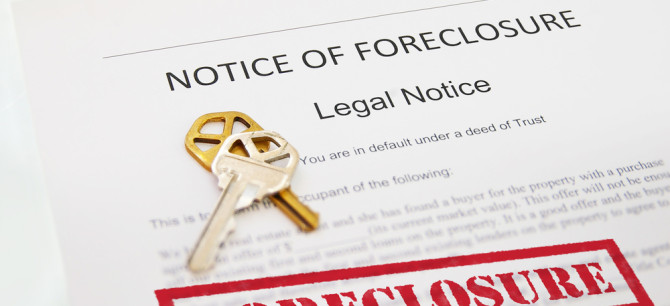Been Foreclosed or Allowed a Deed-In-Lieu-of-Foreclosure? The Bank May Not Be Done With You Yet!

If you have endured the indignity of a foreclosure, short sale, or a Deed-In-Lieu-of-Foreclosure (A/K/A “Deed-In-Lieu”), the loss of your property may not be the end of your ordeal. Recently, Lenders have indicated that they will begin pursuing foreclosed and defaulted Borrowers for Deficiency Judgments. This article summarizes what Deficiency Judgments are, and how they can affect Borrowers that are “underwater” on their defaulted loans.
In Florida, Lenders must sue to pursue foreclosure. Successful Lenders will obtain a Final Judgment reflecting the full value of the loan, plus interest, penalties, late fees, default interest, taxes, attorneys fees, court costs, and all other costs of collection (what I call the “Big Number” here). If the fair market value of the collateral—the property in foreclosure—is insufficient to cover this Big Number, then the Lender may also pursue a Deficiency Judgment for the balance.
To obtain Deficiency Judgments, Lenders must file a motion to assess deficiency or file a separate lawsuit requesting one. Whether Deficiency is sought after Final Judgment, short sale, or Deed-In-Lieu, the process is similar: the Lender must prove to the court what the fair market value of the collateral was the day it was transferred, which the court will subtract from the Big Number. The difference between the Big Number and the fair market value will determine the Lender’s award in Deficiency.
Borrowers can defend against Deficiency Judgments, but they must effectively present evidence refuting Lender’s entitlement and/or fair market valuation. As such, Borrowers are encouraged to retain competent legal counsel and a certified appraiser to do so. The court will ultimately decide the Lender’s entitlement to a deficiency, the true fair market value of the collateral when transferred, and the amount of the deficiency (if any).
Lenders may also obtain deficiency judgments when mortgaged property is transferred via short sale or Deed-In-Lieu when the Lender does not waive its right to seek one. For this reason, Borrowers are also encouraged to obtain the assistance of counsel in negotiating Deeds-In-Lieu or short sales. Lastly, the time within which Lenders can pursue deficiencies begins to run the day after a Certificate of Title is issued by the court (in foreclosure), the day after a Deed-In-Lieu is accepted by the Lender, or the day after a short sale closing.
The general rule is that Lenders have five years to pursue deficiencies; however, many residential foreclosures and Deeds-In-Lieu deficiencies must now be sought within one year. Again, Borrowers are encouraged to seek legal counsel in determining applicable deadlines for deficiencies. Please note, all monetary judgments remain in effect for twenty years in Florida and can be the subject of further collection efforts including, but not limited to, garnishments, levies, and judgment liens.
The information presented in this article should be viewed only as a summary of each topic and not construed as legal advice. Legal counsel should be sought for answers to specific legal questions.
